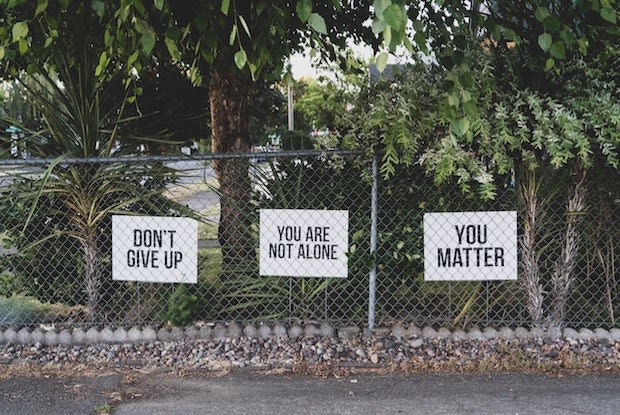Table of Contents
II. Generalized Anxiety Disorder
What Does Depression Feel Like?
Depression is often referred to as the “common cold” of mental health conditions. Depression occurs for several reasons, and other mental health disorders may spur on depression. The symptoms of depression can vary from mild to severe, but it is vital to get properly diagnosed to receive treatment. If you feel persistently sad and have lost interest in activities that once pleased you, you may be experiencing depression. Depression can be caused by a variety of factors, but some common causes include:
- Violence, neglect, abuse, or poverty
- Genetics
- Hormone fluctuation
- Stress at work or school
- Stress about relationships with friends and family
Medications like Lexapro (escitalopram) and Cymbalta (duloxetine) are available to treat some symptoms of depression, but you may require more specific treatments if you have other disorders accompanying depression. Read on to learn more about conditions that commonly occur alongside depression. [1]
Get savings updates for Lexapro
What Does Generalized Anxiety Disorder Mean?
Anxiety and depression often co-exist. Those who experience generalized anxiety disorder (GAD) have exaggerated worries and tension that are often disproportionate to the situation creating anxiety. People can develop anxiety as a child or an adult. GAD can lead to feelings of ongoing anxiety that interfere with your everyday activities. If you experience the following symptoms for at least six months, you may have a generalized anxiety disorder. Symptoms of GAD can include:
- Difficulty handling uncertainty
- Persistent worrying
- Overthinking plans or solutions
- Inability to relax
- Perceiving situations as threatening
- Indecisiveness
- Trouble sleeping
- Irritability
- Nervousness
- Muscle tension and aches
Anxiety can lead to depression because the weight of persistent worrying can lead to symptoms of depression. Feeling overwhelmed by anxiety symptoms can easily translate into persistent sadness and increase your risk of developing depression.
It is not uncommon to feel uncomfortable in certain social situations. People can get nervous and jumpy before a big event at school or work, but social anxiety extends beyond sweaty palms. Social anxiety disorder occurs when the slightest interactions can make you uncomfortable. Being socially anxious can make it difficult to make friends or have successful social interactions. Those who have social anxiety have an overwhelming fear of being judged by others, accidentally offending someone, being embarrassed, and being the center of attention. When you are constantly worried about interacting with others, it can lead to physical symptoms like muscle tension and dizziness. If social anxiety is left untreated, then you may begin to avoid other people, which can lead to feelings of isolation. Feeling isolated can result in symptoms of depression. Panic Disorders are closely related to generalized anxiety disorder. Over 6 million people in the United States are affected by panic disorders every year. This disorder is characterized by a sudden onset of intense fear that results in physical symptoms such as trembling, sweating, heart palpitations, chest pain, nausea, and shortness of breath. The difference between an attack of anxiety versus a panic attack is the level of intensity. Panic attacks feel so severe that those with panic disorders often visit the emergency room or doctor’s office. [2] Panic attacks occur suddenly, so they are often incredibly unpleasant and frightening. Those with this disorder may go undiagnosed because they are too embarrassed to share their condition with their doctor. Many with this disorder are worried about being seen as a hypochondriac, so they often bite their tongue and suffer in silence. There is no need to remain quiet about panic disorders because they are fairly common and may become dangerous to your mental health if left untreated. If someone experiences panic attacks, they can become terrified of having another attack, so they may alter their lifestyle to prevent triggering an attack. This change in lifestyle can lead to avoiding social interactions, which can quickly result in depressive symptoms. [2] Phobias are the most common type of anxiety disorder. Those with a phobia have an irrational fear of an object or situation that poses no real danger. Most people have phobias, which are a little inconvenient, but If your phobia is severe, it can interfere with your daily functioning and prevent you from performing the simplest activity. Around 8 percent of adults are affected by a phobic disorder in a given 12-month period. For many people with a phobic disorder, they typically have more than one phobia. [3] Phobias differ from person to person, but the most common phobias often include the fear of: If phobic disorders are not treated with exposure therapy, they can trigger panic attacks and increase your risk of experiencing depression. As its name suggests, exposure therapy involves exposing a person to their phobia, so they can realize that their fear is not as dangerous as they think it is. Those with depression are more likely to turn to drugs and alcohol. People may use substances to mask their feelings, but they can trigger and intensify feelings of loneliness and sadness. Approximately one-third of people with major (clinical) depression have a problem with alcohol. [4] Alcohol has a sedative effect on the brain, which can feel relaxing at first, but it can significantly increase your risk of depression. Alcohol is a depressant, so it can increase your depression symptoms. Alcohol also lowers the level of feel-good hormones in the brain (serotonin and norepinephrine), which can dramatically sour your mood. [5] Drugs like cocaine may appear to boost mood and productivity for short bursts of time, but that does not last forever. If you already have depression, it is likely that your brain's neurotransmitters are not properly stimulating the pleasure center in the brain. The use of cocaine can further disrupt these neurotransmitters and suppress the body’s production of serotonin. Intense feelings of depression may also accompany cocaine withdrawal. If you feel that you have a problem with drugs and alcohol, your doctor can help you find treatment for your depression as well as any addictions you may be experiencing. [6] All disorders that may accompany depression have their methods for treatment. If you are experiencing depressive symptoms, your doctor will typically prescribe antidepressants to regulate your mood and serotonin levels in the brain. Balancing your brain chemicals with drugs like Cymbalta or Lexapro can have significantly positive effects on your mood, increasing the success of other therapies you may seek to treat other disorders. Disorders accompanying depression can improve with antidepressants, but therapy is an equally important treatment for these conditions. Psychotherapy is necessary for people to identify the cause of their anxieties, phobias, and panic attacks. A licensed talk therapist can help a person develop beneficial coping mechanisms to get their mental health disorders under control. If drugs or alcohol need to be addressed in your recovery plan, then a doctor can refer you to a rehabilitation center. The content provided in this article is based on thorough research and in some cases, reviewed by a medical professional. Our goal for the information is to provide helpful, general health informational. It is not intended as a substitute for professional medical advice.
a. Social Anxiety Disorder
What Are Panic Disorders?
Phobic Disorders

Substance Abuse Disorders
What is the Treatment for Depression?

